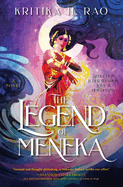Elizabeth Nunez, a Trinidad-born writer "whose novels explored the pressures of family, the queasy legacy of colonialism and the immigrant's longing for home, while often poking fun at American academia and New York City's publishing world," died November 8, the New York Times reported. She was 80.
 |
| Elizabeth Nunez |
Nunez was raised in a prominent Trinidadian family of Portuguese and African descent and educated in the British colonial system (the Republic of Trinidad and Tobago gained its independence the year she graduated from high school). Growing up, she loved stories by the English children's book author Enid Blyton. In 1963, she was sent to a small college in Wisconsin, where she said she was, for all intents and purposes, "a Black English girl."
Nunez was the author of 11 novels, most recently Now Lila Knows (2022). When she began mapping out her first novel, When Rocks Dance (1986), "she was planning to write about a contemporary woman, an academic and a feminist like herself, who was island born but living in America. Instead, she ended up writing mostly about the society she had left behind, the clash of modernism and mysticism there, and steeping herself, at last, in her homeland's dark history," the Times noted.
"I had to understand myself, and where I came from," she once said. "Then I was off to the races."
The protagonist of her second novel, Beyond the Limbo Silence (1998), was a young Trinidadian sent to college in Wisconsin who becomes involved with a Black law student and civil rights activist. The male protagonist of Grace (2003), who taught at a small public college in Brooklyn, also shared some of the author's experiences. In her memoir, Not for Everyday Use (2014), Nunez recalled a colleague snapping at her for her ambition. "You can't come here on your banana boat and feel you can take what my people have suffered and died for," she recalled the colleague saying. "Our blood was spilled to get this college. Know your place."
The search for place, for belonging, marked her work, including the critically acclaimed Prospero's Daughter (2006), which reimagined Shakespeare's The Tempest on a former leper colony off Trinidad, with the rumor of a rape and the efforts of a xenophobic and British detective to get to the bottom of it.
From 1986 to 2000, Nunez was the director of the National Black Writers Conference, an annual event she founded with the novelist John Oliver Killens, which was connected to the Center for Black Literature.
Author Marlon James credits Nunez with elevating his work. Years ago, he attended a workshop she led at the Calabash International Literary Festival, in Jamaica. "I read from what would become my first novel--John Crow's Devil (2005)--and Elizabeth said, 'You're a really good writer, but you don't have a clue about women,' " he recalled in an interview. "She wanted to know how many women writers I had read. I'd read a lot, but they were dead authors. She wanted me to read my way into creating female characters."
James felt a kinship with Nunez's work because she wrote about the legacy of colonial violence, as he did, particularly in her 2000 novel, Bruised Hibiscus, which won an American Book Award. "I like the way she interrogates that legacy," he said. "It's a very haunted book. To be a Caribbean writer is to write about haunted spaces."
 On Instagram, owner Jamie Fortin said that the store sustained "extensive smoke damage.... While we're still waiting on details about the full extent of the damage, we do know our current space won't be operational for the rest of the year--and most likely longer.... We're working tirelessly to bring Friends to Lovers back to life because this community means the world to us. Thank you for your kindness and support during this time." Fortin has established a GoFundMe campaign that has already raised $13,000.
On Instagram, owner Jamie Fortin said that the store sustained "extensive smoke damage.... While we're still waiting on details about the full extent of the damage, we do know our current space won't be operational for the rest of the year--and most likely longer.... We're working tirelessly to bring Friends to Lovers back to life because this community means the world to us. Thank you for your kindness and support during this time." Fortin has established a GoFundMe campaign that has already raised $13,000.








 Barnes & Noble has sold Sterling Publishing Company, Inc., to Hachette Book Group. Sterling consists of adult imprints Union Square & Co., Puzzlewright Press, Sterling Ethos, and Spark Notes; the children's imprints Union Square Kids and Boxer Books; and the gift and stationery publishers Knock Knock and Em & Friends. It is the publisher of Mo Willems, Caroline Chambers, Dan Pelosi, Melissa Blair, L.S. Stratton, and Dusti Bowling, among others, and has a program of literary classics. B&N bought Sterling in 2003.
Barnes & Noble has sold Sterling Publishing Company, Inc., to Hachette Book Group. Sterling consists of adult imprints Union Square & Co., Puzzlewright Press, Sterling Ethos, and Spark Notes; the children's imprints Union Square Kids and Boxer Books; and the gift and stationery publishers Knock Knock and Em & Friends. It is the publisher of Mo Willems, Caroline Chambers, Dan Pelosi, Melissa Blair, L.S. Stratton, and Dusti Bowling, among others, and has a program of literary classics. B&N bought Sterling in 2003.



 "Lovebound
"Lovebound  Kritika H. Rao (The Surviving Sky) reclaims a character from Hindu tradition and brings her into her own in the epic romantic fantasy The Legend of Meneka, first in the planned Divine Dancers duology.
Kritika H. Rao (The Surviving Sky) reclaims a character from Hindu tradition and brings her into her own in the epic romantic fantasy The Legend of Meneka, first in the planned Divine Dancers duology.